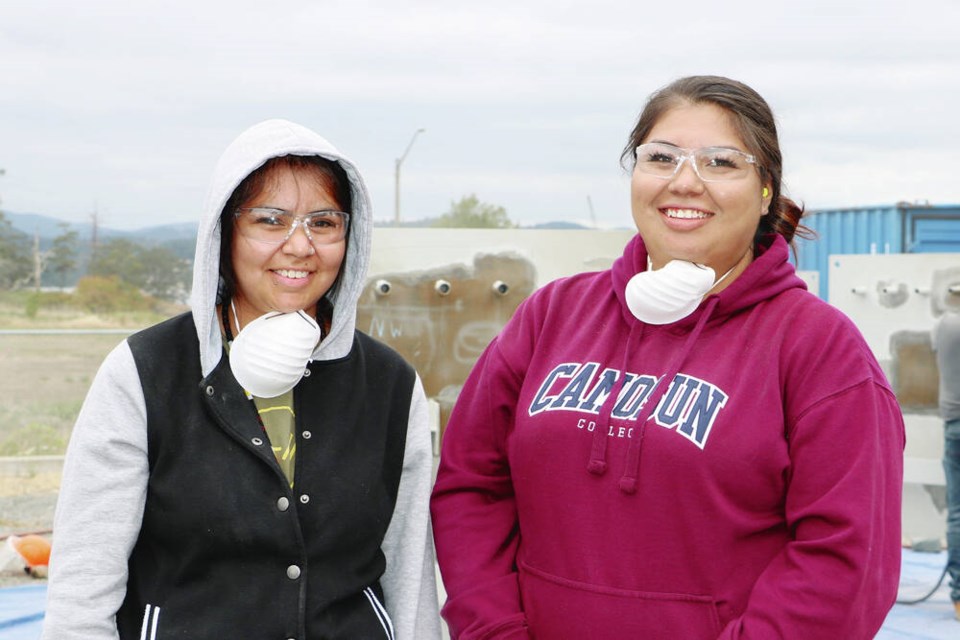A $5.26-million donation will kickstart construction of a new trades training centre on Songhees First Nation land adjacent to Camosun College’s Coastal Centre and close to the federally owned Esquimalt Graving Dock.
The donation from the Dennis and Phyllis Washington Foundation and Seaspan includes $200,000 for scholarships for Indigenous students, Seaspan said in a statement.
Tony Winter, general manager of Seaspan-owned Victoria Shipyards, which operates at the graving dock, said Thursday the industry is dealing with a shortage of skilled trades workers.
Winter said workers are needed in all areas but welders and steel fabricators are particularly in demand right now at the yard, where about 650 trades workers are on the job.
Seaspan said in a statement that it will take an “Indigenous First” approach, offering Indigenous students scholarships and priority access to courses to help overcome financial and systemic barriers to education.
The company has supported trades education at Camosun for many years, previously backing a ship-repair entry-level training course aimed at First Nations students who then become labourers.
“There have been some times when we have hired the whole graduating class,” Winter said.
Becoming a labourer gives workers time to obtain foundation training, which gives them the option of pursuing an apprenticeship in the trades, possibly through evening courses, he said.
Seaspan has increased its focus on apprenticeships, with 103 apprentices enrolled at the shipyard in September, up from 67 in 2022, Winter said.
The company is hoping the centre’s graduates will quickly be hired through unions and go straight to work, he said.
The donation will cover the capital cost of the new building, which is expected to take between 18 months and two years to complete, said Michelle Brown, Camosun’s director of professional studies and industry training.
Camosun will own the building, to be built on leased land. Plans are still being drawn up, but it’s expected to have one level of flexible shop space, with six training bays, topped by an upstairs classroom, Brown said.
The Coastal Centre includes two classrooms and a computer lab but no shop space, she said. It typically offers niche courses in the marine sector, where students learn skills such as how to dock a vessel in dry dock or how to perform a hull inspection, she said.
With adaptable shop space, specific pieces of equipment can be brought in for training purposes, Brown said.
The location of the new facility is “absolutely perfect because it allows us to bridge the gap between the nations who have amazing employees that can work and the employers who want to hire,” she said.
The Coastal Centre already offers programs for Indigenous students as well as for the wider community, seeing about 4,000 students annually.
Camosun will be responsible for annual operating costs for the new facility, which could be covered by sources such as government grants, enrolment fees and industry, Brown said.
Expanded programming at the Coastal Centre will open up more opportunities for people in the marine sector, who may start in one area but decide to take advantage of other options through micro-credentials or short certificate courses or by taking more extensive training, she said.
“That’s the beauty of the marine sector and that’s the beauty of the work we are able to do, to help support that transition as you move throughout the sector.”
>>> To comment on this article, write a letter to the editor: [email protected]



